
Health & Medicine
More sleep, less bad behaviour
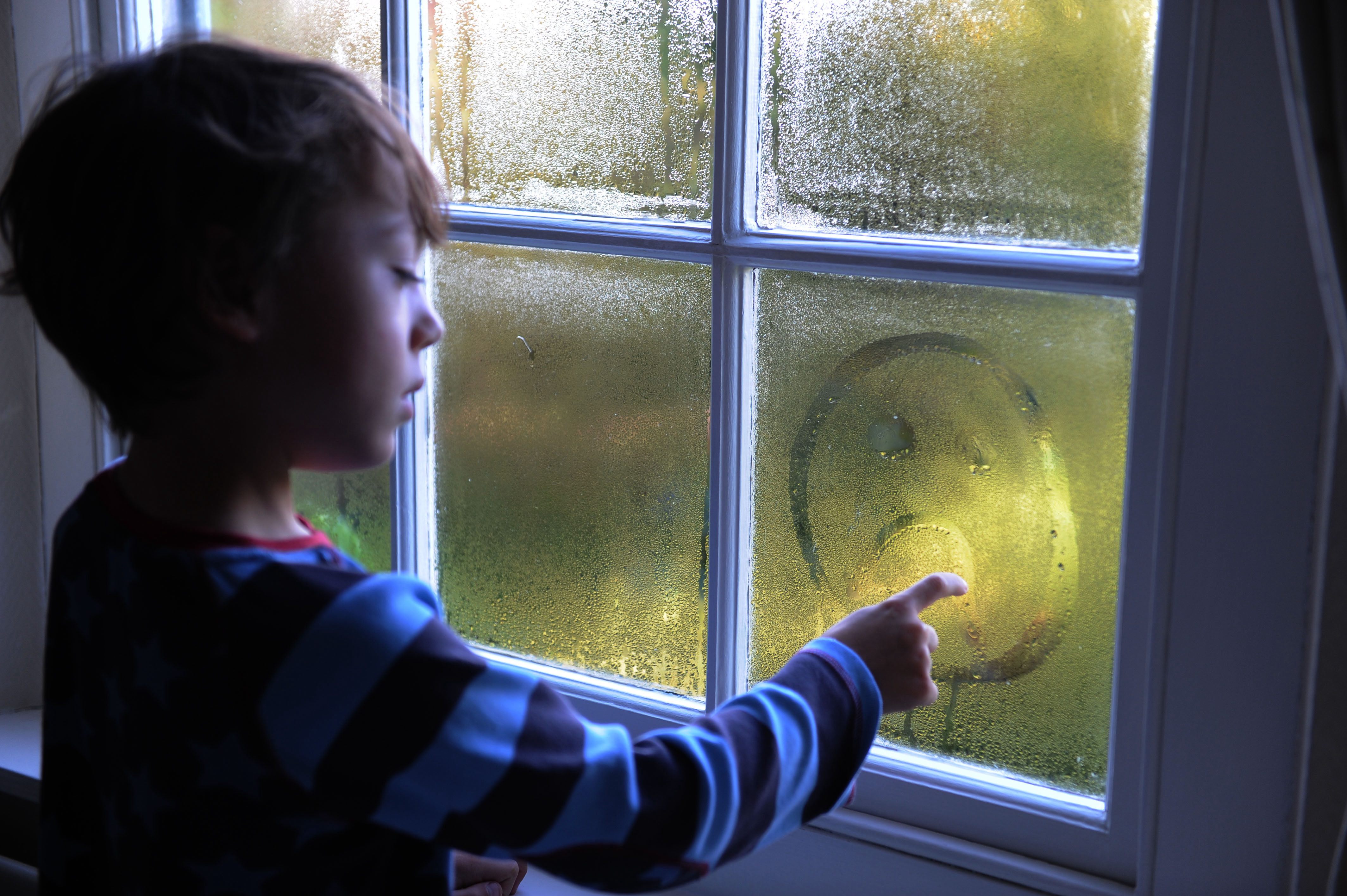
Children have the right to be safe from violence inside and outside the home – and Australia’s corporal punishment of children legislation needs to catch up
Published 3 May 2023
In Australia, the corporal punishment of children is legal.
In all states and territories, parents or carers are permitted to punish children using physical force with the intent to cause some degree of pain or discomfort, however light.

It also remains legally acceptable for a parent or carer to hit or smack their child with the hand, pinch them, or wash their mouth out with soap.
But it’s illegal to hit a child who is not your own, a dog or another adult. Hitting or hurting anyone other than your own child can result in criminal charges of assault.
It’s important to note, it’s not like this everywhere. Around the world, 65 countries have made corporal punishment illegal.

Health & Medicine
More sleep, less bad behaviour
Australia still lags behind, favouring the idea that parents and carers will make the right choices. Australian state and territory governments are reluctant to change legislation that interferes with the right of parents in how they raise their children.
And yet there are many instances where legislation does affect family life. For example, it’s against the law to smoke in a car with your children under the age of 16, and it’s compulsory for children to use car seats and seat belts. Governments do legislate when it comes to children’s wellbeing.
Our team from the Parent and Family Research Alliance, led by myself and Professor Daryl Higgins from Australian Catholic University, has researched corporal punishment, published in the Australian and New Zealand Journal of Public Health, and believe it’s time to reform corporal punishment legislation in Australia.
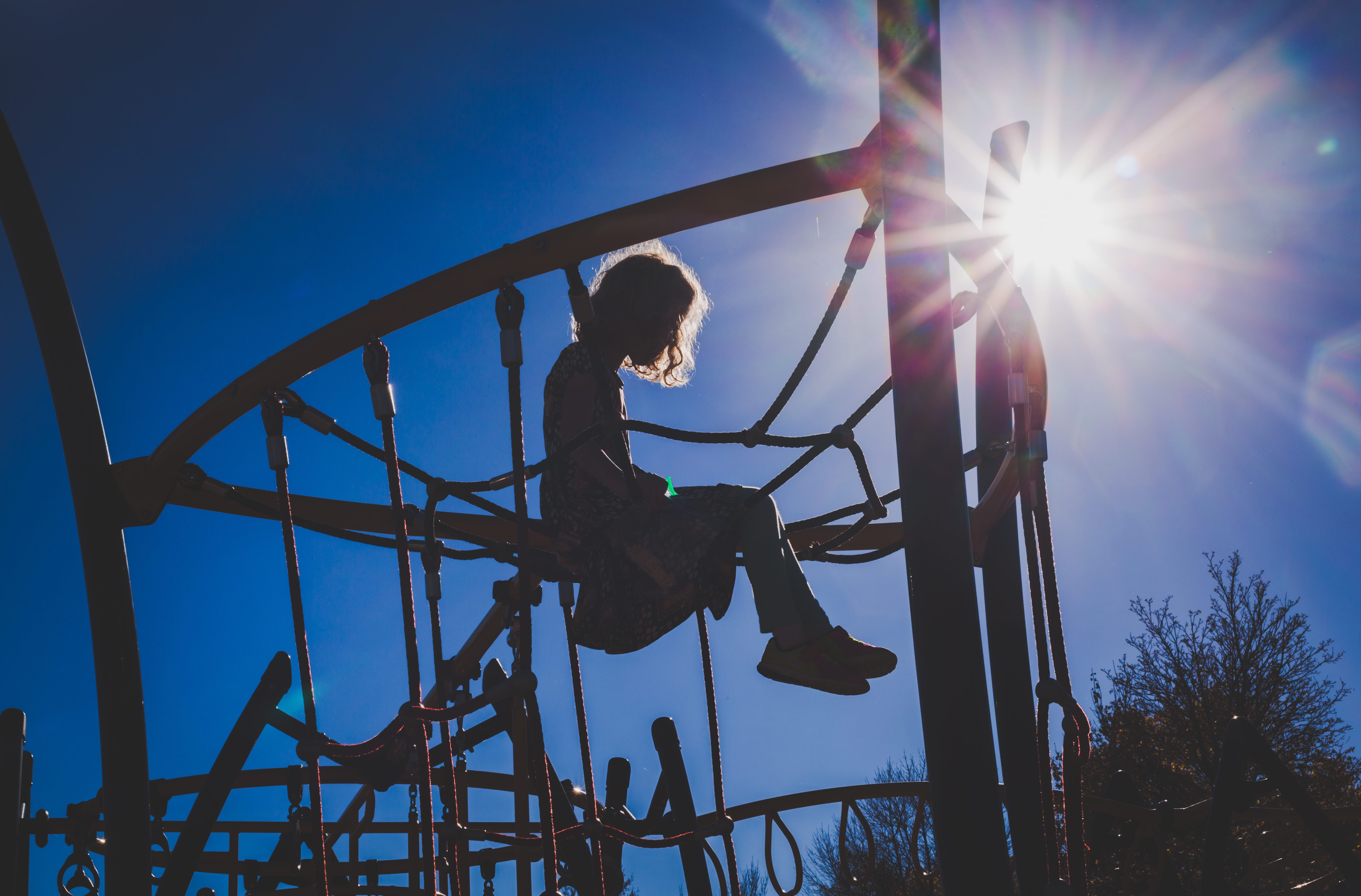
Australia’s position on corporal punishment is inconsistent with international human rights guidelines that the country follows and is signatory to.
One of the 17 United Nations Sustainable Development Goals aims to “end all forms of violence against children”, and the United Nations Committee on the Rights of the Child urges countries to prohibit corporal punishment – taking all appropriate legislative, administrative, social and educational measures to eliminate “all forms of physical or mental violence”.

Health & Medicine
The legacy of maltreatment on the brain
Currently 65 countries around the world have changed their laws, banning corporal punishment in homes and schools. Canada is currently on the brink of changing the law, introducing Bill S-251, which would ban corporal punishment in the country.
Our failure to undertake legal reform and prohibit physical punishment by parents and carers has prompted harsh criticism from the international community.
Research shows corporal punishment is not effective as a method of discipline.
In fact, alternatives to corporal punishment are much more effective at guiding and teaching children. Research from countries that have prohibited corporal punishment shows that attitudes to using corporal punishment change once legislation is introduced and parents use it less.

Corporal punishment also has a wide range of adverse impacts that radiate across a person’s life span.
Physical abuse, at the extreme end of corporal punishment, has an even more severe impact.
Numerous studies have shown that the experience of corporal punishment in childhood is linked with mental health problems, negative parent-child relationships, aggression, antisocial behaviour, impaired cognitive ability, low self-esteem and, even in adulthood, domestic violence.

Health & Medicine
Children speak out on family violence
It also has a profound negative impact on brain development – similar to the effects of physical abuse.
Early data from the Australian Child Maltreatment Study shows that experiencing corporal punishment four or more times as a child almost doubles the risk for anxiety and depression in early adulthood.
In most states and territories in Australia, hitting children is prohibited in schools or education environments, but is allowed at home.
In New South Wales, the Northern Territory, Queensland, Tasmania and Western Australia, parents and caregivers are permitted to discipline children in the home using ‘reasonable’ physical force.

In Victoria, South Australia, and Australian Capital Territory common law applies through the courts to permit reasonable corporal punishment. However, in these states, punishing a child who is incapable of understanding what they have done wrong, or exerting force that is unjustifiable, is illegal.
In all states and territories, corporal punishment is prohibited in early childhood education and care settings. In most jurisdictions, corporal punishment is prohibited where children are in state care.
These prohibitions have come about in the last 30 years and have advanced children’s rights to protection from physical discipline.

Health & Medicine
Why helping at home is good for kids
They also indicate a legislative appetite to prohibit corporal punishment.
To bring about legislative reform in Australia, there’s a variety of concerns held by different members of the community that may need to be overcome.
These include:
Parental rights: Politicians make significant policy decisions that support child development but they are often concerned about dictating how families raise their children and discipline them.
This idea is that the state should not interfere or have control over family matters that are private and influenced by culture and religion.
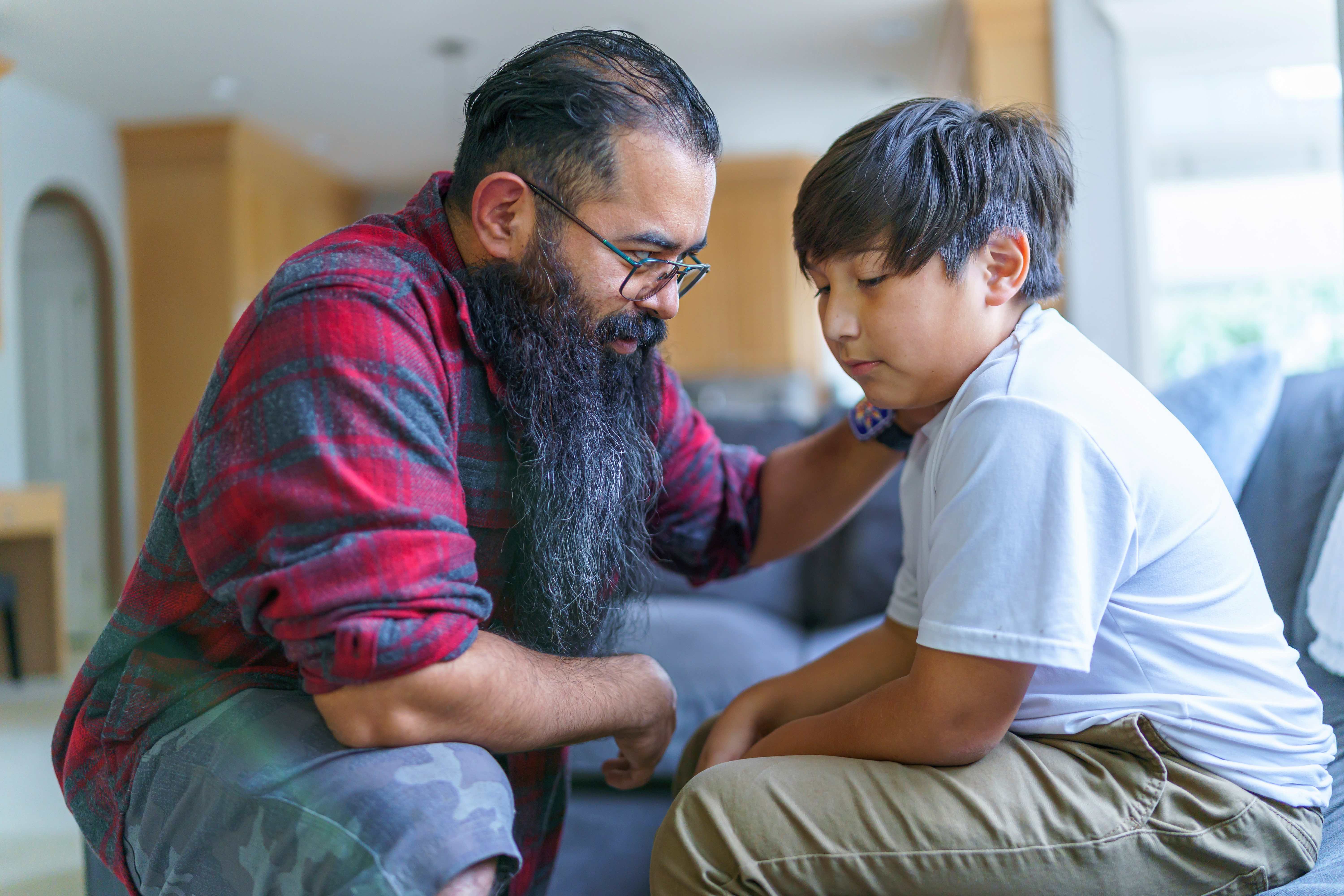
As a result, politicians tread carefully around the issue of parental privacy or parent rights, seeing their role as supporting families, but not to interfere.
But this raises the question of what about children’s rights? Who advocates for children to have the right to live a life free from violence?
Effective parenting strategies: Some parents believe that corporal punishment is effective to correct children’s behaviour. Punishment or the threat of it may result in short-term compliance.

Health & Medicine
How digital devices can become weapons in our relationships
However, a meta-analysis of over 70 international studies found corporal punishment decreases compliance over time and increases aggression.
Upholding a ban on corporal punishment: Prohibiting parents’ use of corporal punishment through legislation may result in prosecution and criminalisation of parents, fines that would disadvantage families, and put strain on the justice systems.
However, these concerns are unfounded, based on evidence from other countries, like New Zealand (see below), who did not have increased prosecution after law reform.
Impact on different communities: Some communities, such as Indigenous Australians, will need to determine what will help their community if legislation change occurs.
With a history of police intervention and child protective involvement fuelled by forced removal of children, family separation and institutionalisation, it’s important that legislative change does not become another punishing experience, marginalising Indigenous families.
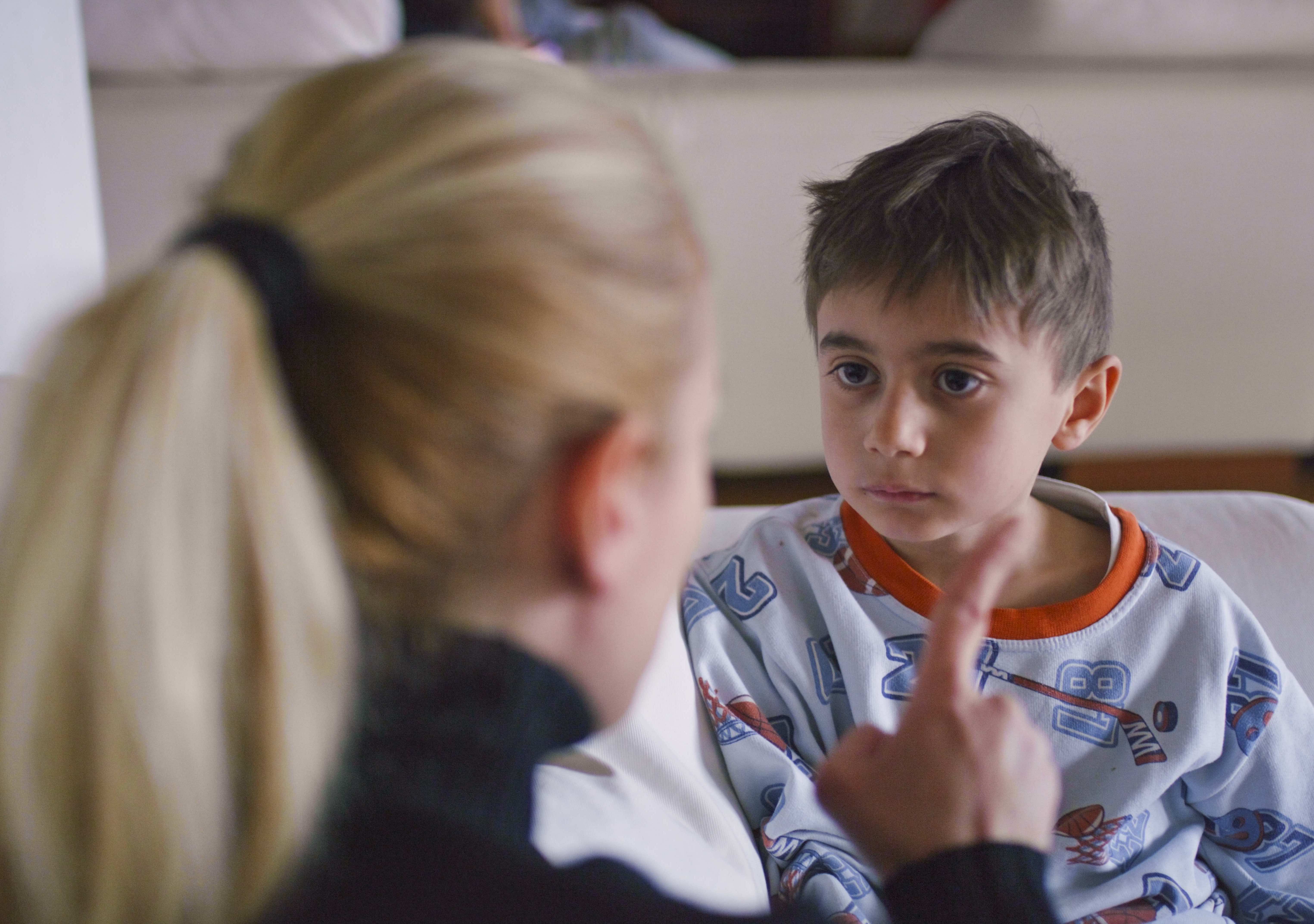
Law reform may also be a challenge for culturally and linguistically diverse communities where corporal punishment is more commonly practised.
Parent education programs that provide alternatives to corporal punishment are important in all communities especially where corporal punishment occurs more often.
Many other countries have made the change – and have seen the benefits.

Health & Medicine
Parents: 24/7 CEOs of our kids’ lives
In 1989, the United Nations’ Convention on the Rights of the Child made corporal punishment illegal. Since then, 65 countries have changed legislation, including New Zealand, Wales, Ireland, Austria, Germany, France and Spain.
In most countries, legislative change is typically followed by educational campaigns highlighting the adverse impact of physical punishment in childrearing.
In countries with public health education about the new laws, the public have been made aware of the harmful effects of corporal punishment and provided with alternative parenting strategies.
In 2007, New Zealand passed a law prohibiting corporal punishment.
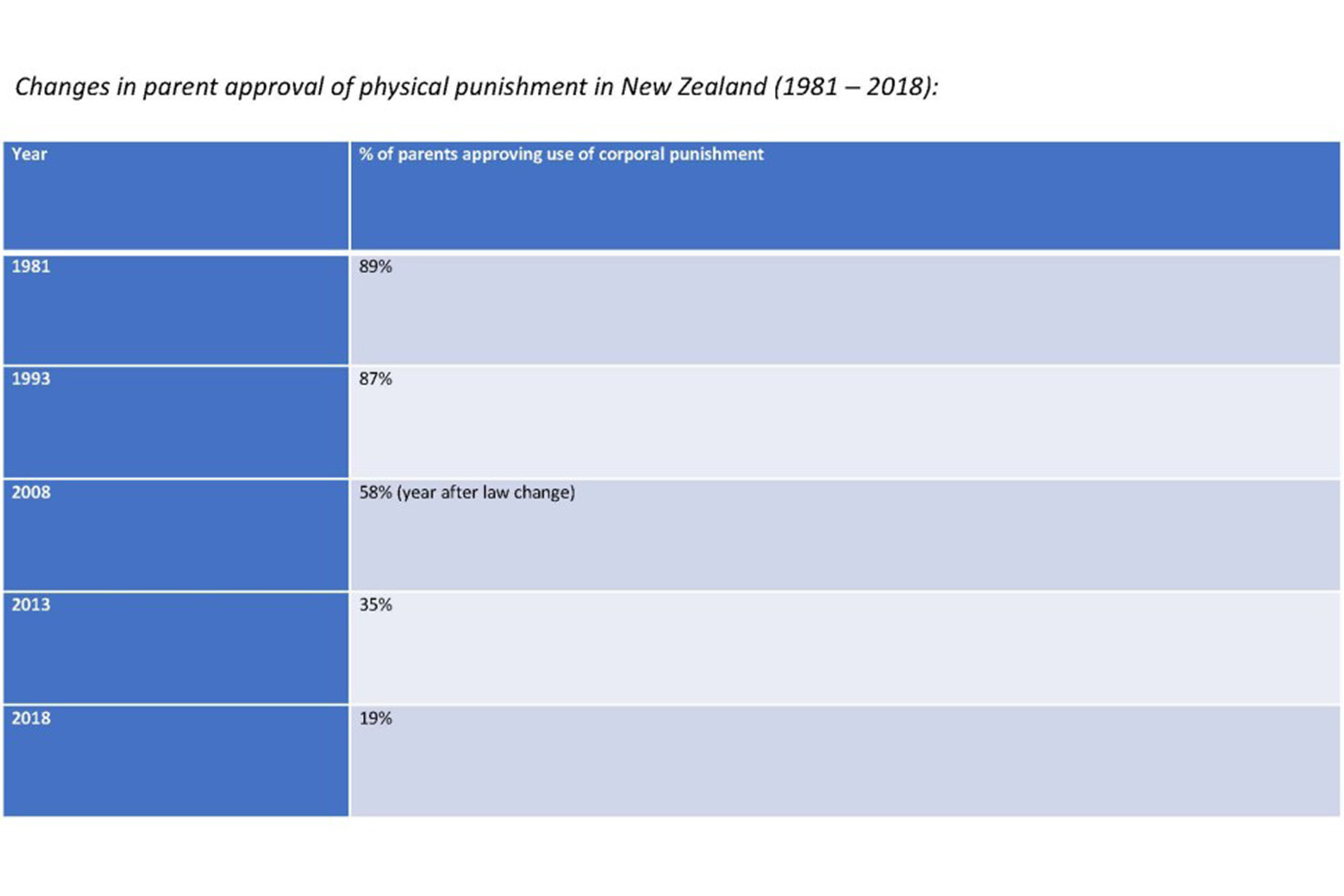
This was done alongside a widespread public health campaign encouraging non-violent discipline, as well as consultation and work with different communities about the changes.
Police monitoring of smacking reports found an overall reduction in all types of child assault incidents. Attitudes towards corporal punishment also changed, with dramatic reductions in support after the change.
Changing legislation to end corporal punishment needs to be approached from the perspective of child rights and providing parenting support.
Children have the right to be safe from violence both inside and outside the home – in the same way that adults are protected from any form of violence. As a society we have a moral imperative to protect children from all forms of harm.
It’s time to reform our current legislation. It’s time to increase public awareness of corporal punishment and its effects.
And it’s time for Australian parents to have information, support, and access to programs that promote alternative forms of discipline that are more effective and do not cause children harm.
Banner: Alamy